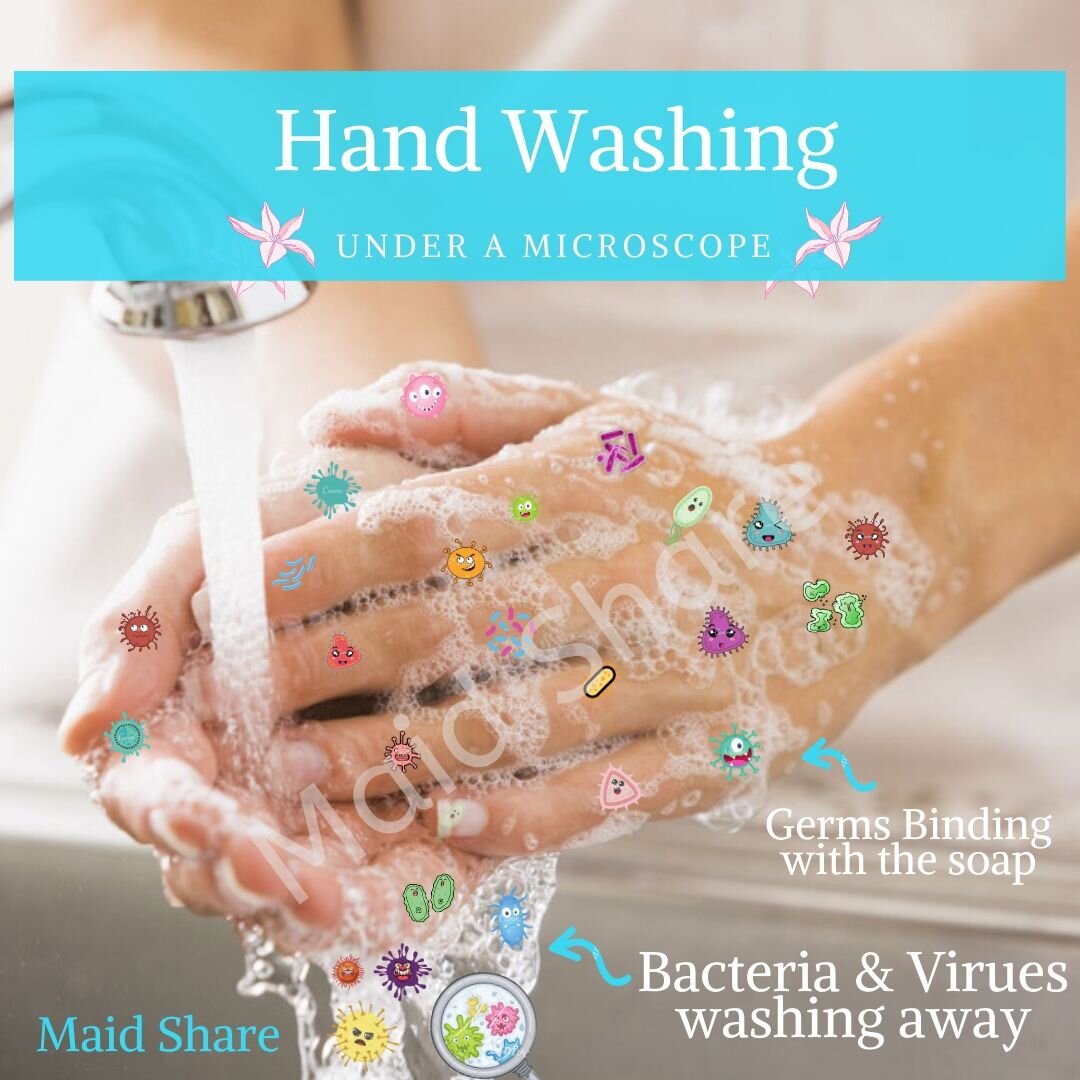Wash Your Hands! Stop the Spread of Bacteria & Viruses
Amid this Corona virus outbreak, it seems like everywhere you look there is a “wash your hands” campaign. While we sometimes think, this is a standard thinking but it is not. Oftentimes what is common sense for us isn’t so common for others. We don’t like to judge but we know not everyone is being taught the importance of proper hygiene. So rather than bashing people for this matter, let us discuss why we should wash your hands and how to properly do it.
How germs get onto hands and make people sick?
The easiest way for germs (bacteria and viruses) to escape their hiding places and find their way into your body is through your hands. Hands are constantly interacting with objects in your home, and they're also what you use to wipe your eyes and nose and to feed your mouth. That's a common way for infectious diseases to escape your body's main natural defense—your skin.
Yes, we know everyone knows there are germs around them. Some of the places are obvious— you probably sometimes forget to wash your hands after cleaning up your cat's litter box, changing a diaper, or using the toilet. A small splash of fecal matter or a sneeze in a hand within hours have over thousands of tiny microscopic microbes. Many of them are just waiting for the opportunity where you put your hand to your mouth or touch something that you eat (that you just touched with your dirty hands that is now infected) they are now inside you. Read our blog on Bacteria Vs Viruses to see how they reproduce and why bacteria are more dangerous.
Keeping hands clean is one of the most important steps we can take to avoid getting sick and spreading germs to others. Many diseases and conditions are spread by not washing hands with soap and clean running water.
Germs can also get onto hands if people touch any object that has germs on it because someone coughed or sneezed on it or was touched by some other contaminated object. When these germs get onto hands and are not washed off, they can be passed from person to person and make people sick. Washing hands prevents illness and spread of infection to others.
When You Should Wash Your Hands & How Often to Stay Healthy?
According to the CDC (Center for Disease Control and Prevention), you can help yourself and your loved ones stay healthy by washing your hands often, especially during these key times when you are likely to get and spread germs:
Before, during, and after preparing food
Before eating food
Before and after caring for someone at home who is sick with vomiting or diarrhea
Before and after treating a cut or wound
After using the toilet
After changing diapers or cleaning up a child who has used the toilet
After blowing your nose, coughing, or sneezing
After touching an animal, animal feed, or animal waste
After handling pet food or pet treats
After touching garbage
Pretty much all the time, right? It’s hard to say when because it should always be done. This isn’t to scare anyone but to inform you of the hidden dangers. Microbes (germs) are apart of our life and will always be here. Check out our blog about Bacteria Vs Viruses.
Follow Six Steps to Wash Your Hands the Right Way.
Washing your hands is easy, and it’s one of the most effective ways to prevent the spread of germs. Clean hands can stop germs from spreading from one person to another and throughout an entire community—from your home and workplace to childcare facilities and hospitals.
Follow these six steps every time.
Wet your hands with clean, running water (warm or cold), and apply soap.
Lather your hands by rubbing them together with the soap. Lather the backs of your hands, between your fingers, wrist and under your nails.
Scrub your hands for at least 20 seconds. Need a timer? Hum the “Happy Birthday” song from beginning to end twice.
Rinse your hands well under clean running water. Turn tap off with paper towels or elbow if you can
Dry your hands using a clean towel or air dry them. Tip: Do not wipe your hands on your clothes. Thank me later.
Maid Share Cleaning Company is committed to the education of clean. We are a community that wanted to help out our fellow neighbors in anyway we can. Thank you for reading.
Reference: https://www.cdc.gov/handwashing/why-handwashing.html








